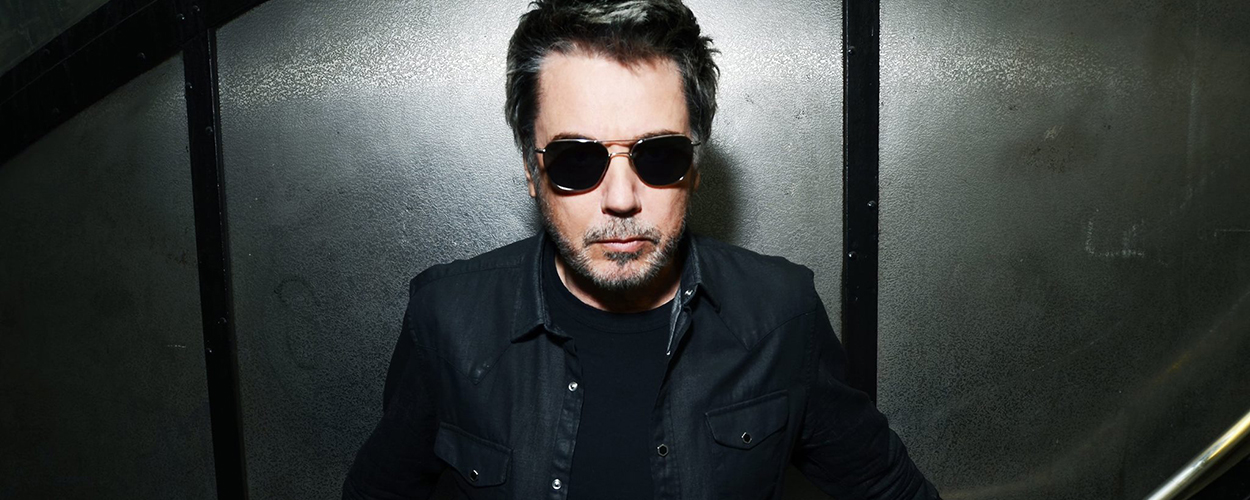This website uses cookies so that we can provide you with the best user experience possible. Cookie information is stored in your browser and performs functions such as recognising you when you return to our website and helping our team to understand which sections of the website you find most interesting and useful.
Business News Industry People Labels & Publishers
Jean Michel Jarre talks “value transfer”
By Chris Cooke | Published on Wednesday 25 January 2017

It’s just occurred to me we’ve not said “value gap” once in a CMU Daily yet this year. That can’t be right, can it? Just because it’s 2017, that’s no reason to stop banging on about the value gap. So well done Jean-Michel Jarre for getting it back on the agenda.
Jarre was speaking in his capacity as President of global author rights organisation CISAC at an event in Italy yesterday to launch a new report by the Italian collecting society SIAE. That report was one of those studies aiming to show the economic importance of the creative industries, in this case specifically in Italy, though Jarre also referenced CISAC’s own past globally-focused research covering similar ground.
Jarre told his audience, including Italian Culture Minister Dario Franceschini: “For many years, we have known that our economic growth in the future will not come from manufacturing or traditional industries, but from knowledge and creativity. But now, we also have comprehensive studies – domestic and global studies – spread across multiple sectors and territories, to prove it”.
He added: “These studies translate the forecasts into hard evidence and data. This data shows a truly impressive picture. Not only of what our creative sectors have achieved, but also what they can go on to achieve if the right environment is provided for them in the future”.
So, an upbeat start, but note the need for “the right environment” for future success there. That sounds like the perfect set up for some ‘value gap’ chatter doesn’t it?
Continued the CISAC President: “Today is not about self-congratulation. It is about building more success. Identifying where progress is being held back. And proposing solutions to unlock potential where it is being stymied. Because the truth is that the creative economy, for the creators whose works are driving it, is still under-performing. We need to fix flaws in the environment in which creators are working. And if we do, the economic benefits will be enormous, leading to further growth and many more jobs”.
Got any particular flaws in mind, Jean-Michel? “The biggest flaw I want to highlight today is what is known as the ‘transfer of value’ or the ‘value gap'”, he went on. “To survive and thrive, creators must be fairly paid for their works. Yet today, some of the world’s major digital music services are building large businesses on back of creativity while paying next to nothing in return. This is not fair. It is a market distortion. And it is holding back growth in the creative sectors”.
The ‘value gap’, of course, is the music industry’s favoured term (though contrary Jarre does actually seem to prefer ‘transfer of value) for the revenue the creative sector feels it is losing as a result of certain digital firms exploiting certain aspects of copyright law.
In particular, the safe harbours that protect ‘intermediaries’ via which third parties distribute content without a licence. It’s the safe harbour dwelling companies who have built overt media businesses based on user-uploaded content that the music community really object to, which has mainly meant YouTube and possibly SoundCloud to date, though Facebook is very much in that territory now.
As previously reported, last year’s draft European Copyright Directive contains an article attempting to revise safe harbour rules in Europe, though the wording is currently a little wishy washy, and both music and tech firms are busy lobbying the European Parliament and EU member state governments to edit those lines to their advantage.
Jarre, meanwhile, remains hopeful that the Directive could address “the biggest flaw”. He went on: “The good news is that the problem of the ‘transfer of value’ has been recognised by policy makers. The EU is addressing the ‘transfer of value’ through the new Copyright Directive proposed last year. It would hopefully end the misapplication of copyright laws that currently devalues creative works online”.
Concluding, he said: “This will be great news for creators and unlock economic growth in the sector. We must throw our support behind the proposal as it works its way through the European Parliament this year. And after that, we should look beyond Europe to address the problem across the rest of the world”.





